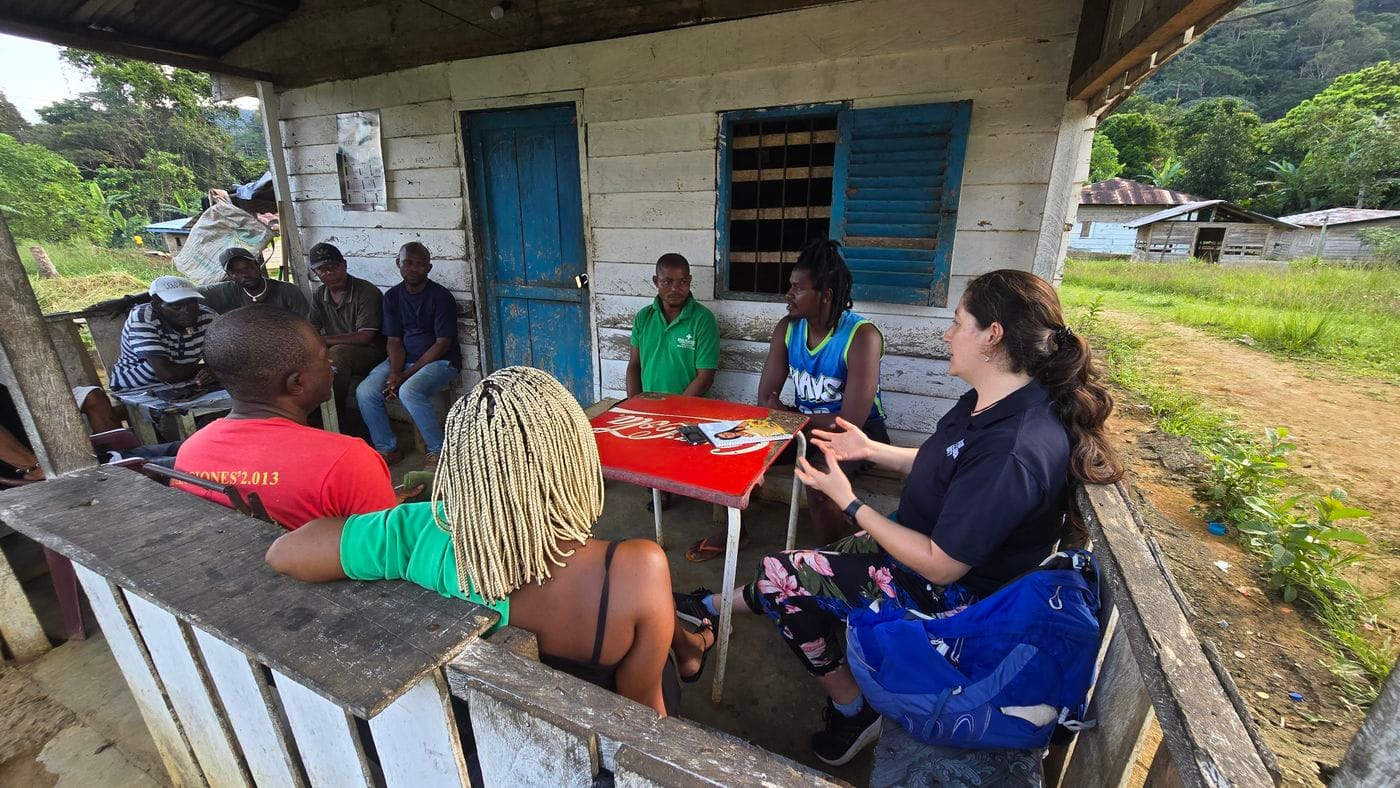
Hand in Hand: Uniting for positive human–elephant coexistence
Posted on: 9 July, 2025
For over three years, Bristol Zoological Society and the Government of Equatorial Guinea, in partnership with the National Institute for the Development and Management of Protected Areas (INDEFOR-AP), have embarked on a remarkable journey to enhance the conservation status of the Critically Endangered African forest elephant within and around Monte Alén National Park.
Together, we are dedicated to fostering harmonious coexistence between these magnificent creatures and the rural communities residing along the borders of this vital protected area.
Working together and empowering local communities
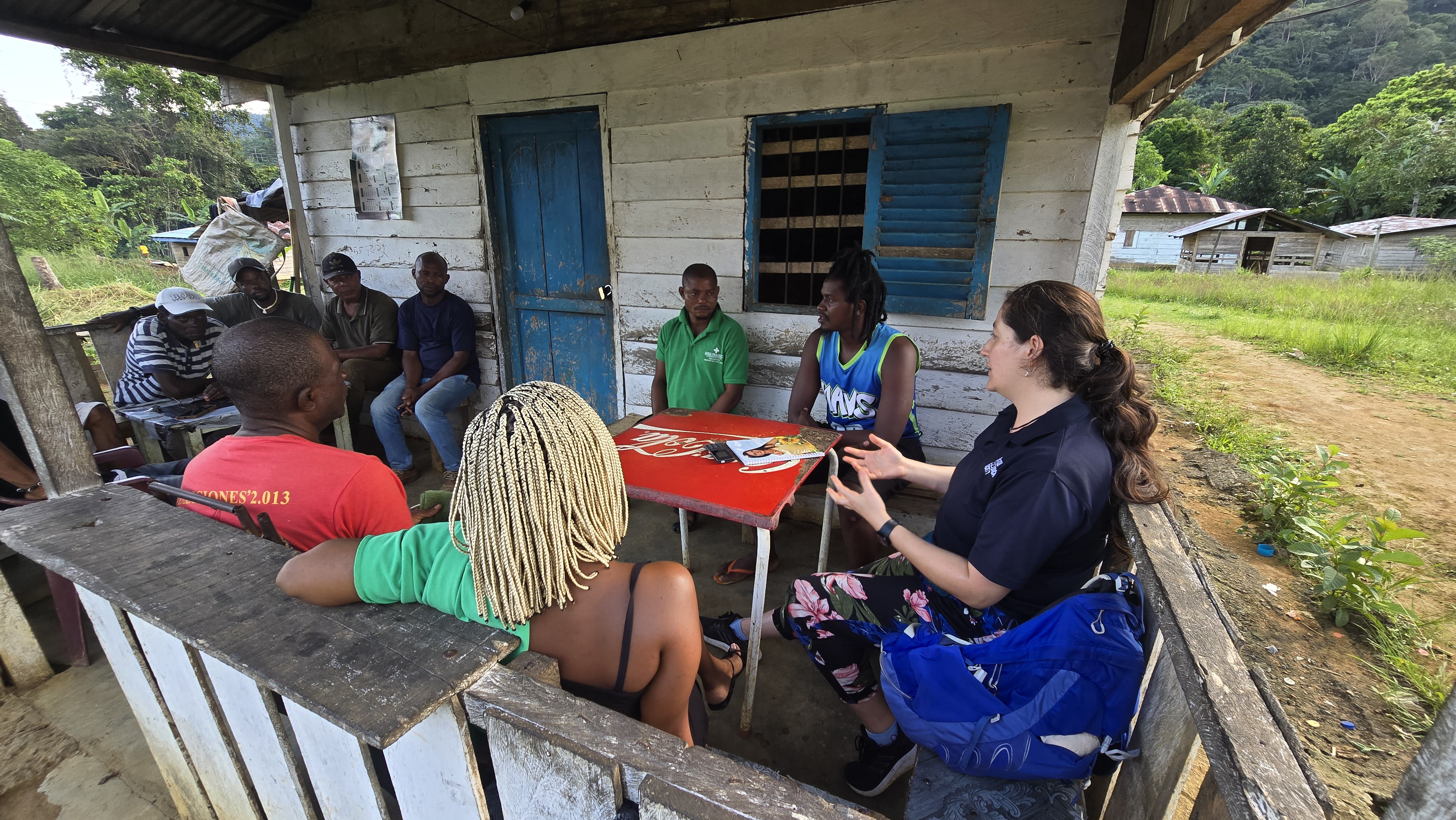 The project focuses on working with key partners and empowering local communities. This initiative has seen local teams trained in essential skills, such as data collection, monitoring elephant intrusions, maintaining protective fences, and using camera traps. These hands-on sessions are further enriched by knowledge-sharing workshops that highlight best practices in wildlife conservation.
The project focuses on working with key partners and empowering local communities. This initiative has seen local teams trained in essential skills, such as data collection, monitoring elephant intrusions, maintaining protective fences, and using camera traps. These hands-on sessions are further enriched by knowledge-sharing workshops that highlight best practices in wildlife conservation.
“Smelly elephant” repellent: A sustainable, locally crafted solution
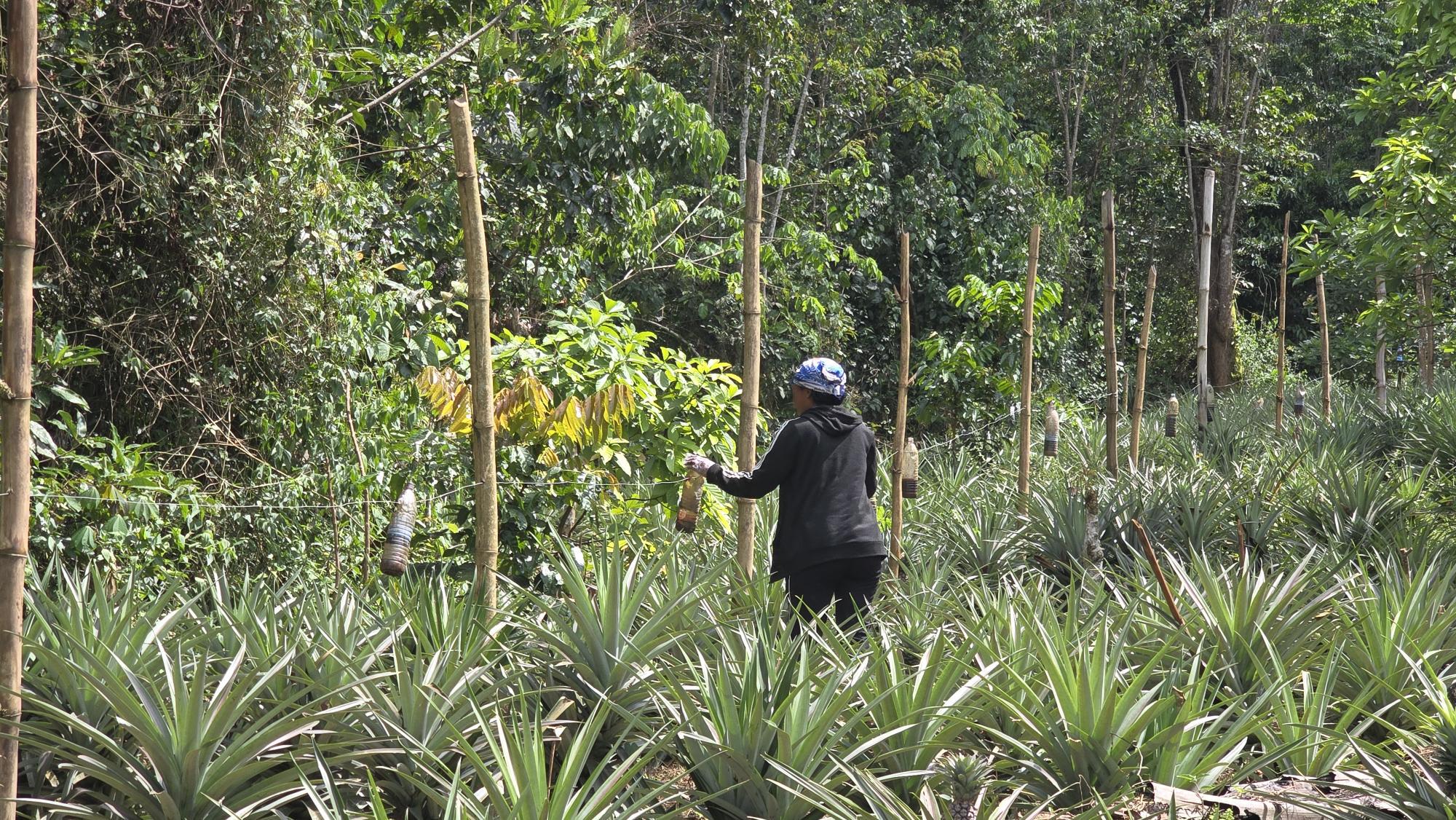 To tackle the challenge of crop-raiding by elephants, we have implemented the production of a natural smelly repellent, known as the “smelly elephant repellent.” With a new and improved formula crafted solely from eggs, fresh dung, fresh chilli, and used engine oil, this solution is now more affordable and accessible, ensuring long-term use by local farmers.
To tackle the challenge of crop-raiding by elephants, we have implemented the production of a natural smelly repellent, known as the “smelly elephant repellent.” With a new and improved formula crafted solely from eggs, fresh dung, fresh chilli, and used engine oil, this solution is now more affordable and accessible, ensuring long-term use by local farmers.
This innovation empowers communities to independently create the repellent, safeguarding their crops sustainably and has led to remarkable decreases in elephant crop-raiding incidents, as reported by our farmers.
Livelihood-focused initiatives: Building community resilience
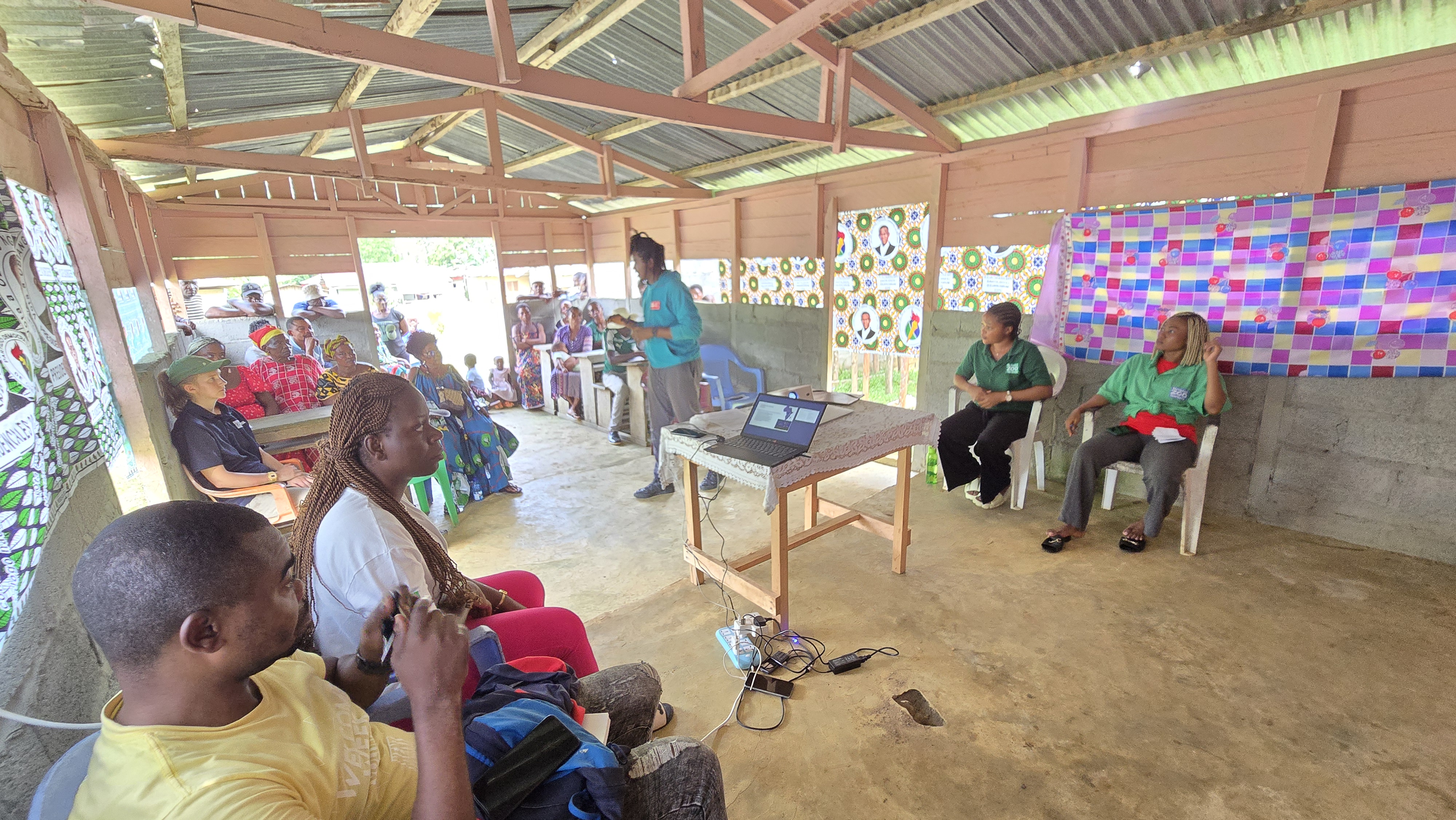 At the heart of our mission at Bristol Zoological Society is a powerful commitment to nurturing positive human-wildlife coexistence and enhancing livelihoods. We're excited to share our active support for the development of community farms, especially those championed by inspiring women! These farms are cultivating crops like chilli, aubergine, and okra, all of which elephants tend to steer clear of. These crops do more than just boost local food systems and create extra income; they are also essential ingredients in the locally crafted elephant repellent.
At the heart of our mission at Bristol Zoological Society is a powerful commitment to nurturing positive human-wildlife coexistence and enhancing livelihoods. We're excited to share our active support for the development of community farms, especially those championed by inspiring women! These farms are cultivating crops like chilli, aubergine, and okra, all of which elephants tend to steer clear of. These crops do more than just boost local food systems and create extra income; they are also essential ingredients in the locally crafted elephant repellent.
By empowering communities to produce and apply this repellent themselves, we’re fostering a spirit of self-reliance and long-term resilience. This approach, combined with income-generating farming practices, offers a holistic solution that beautifully aligns conservation efforts with rural livelihoods.
Beekeeping: Bridging protection with production
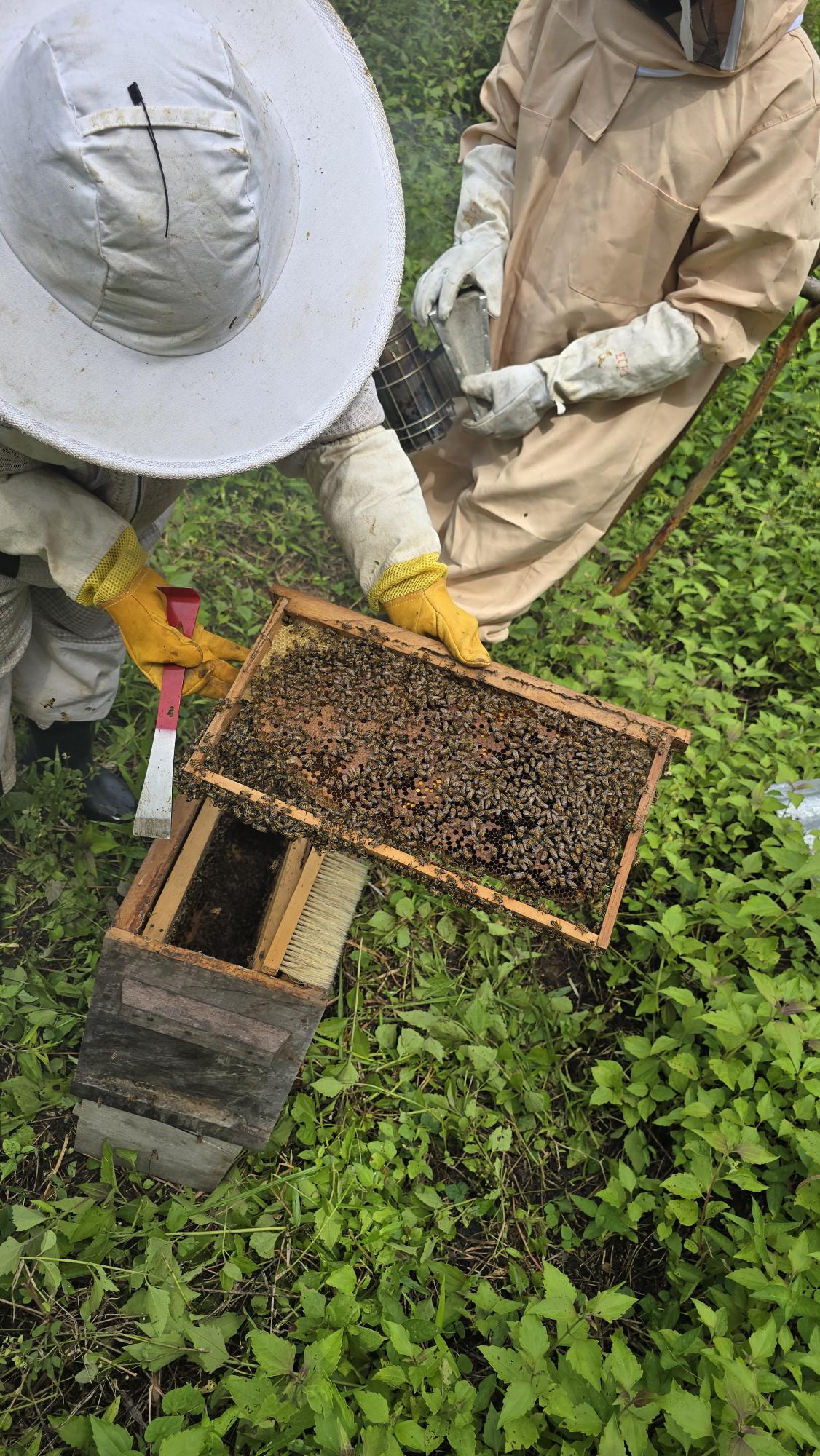 One of the most exciting developments of the project has been the growth of community-based beekeeping. Inspired by successful models from East Africa, the application of beehive fences has effectively deterred elephants while also providing opportunities for organic honey production. Training sessions are being organised to equip local villagers with the skills to manage, maintain, and monitor their hives, protecting them from pests and ensuring a sustainable and productive beekeeping system.
One of the most exciting developments of the project has been the growth of community-based beekeeping. Inspired by successful models from East Africa, the application of beehive fences has effectively deterred elephants while also providing opportunities for organic honey production. Training sessions are being organised to equip local villagers with the skills to manage, maintain, and monitor their hives, protecting them from pests and ensuring a sustainable and productive beekeeping system.
Together, we are not just conserving wildlife, we are weaving a tapestry of community resilience and sustainable practices that benefits both people and elephants, as we continue to inspire change and promote coexistence!
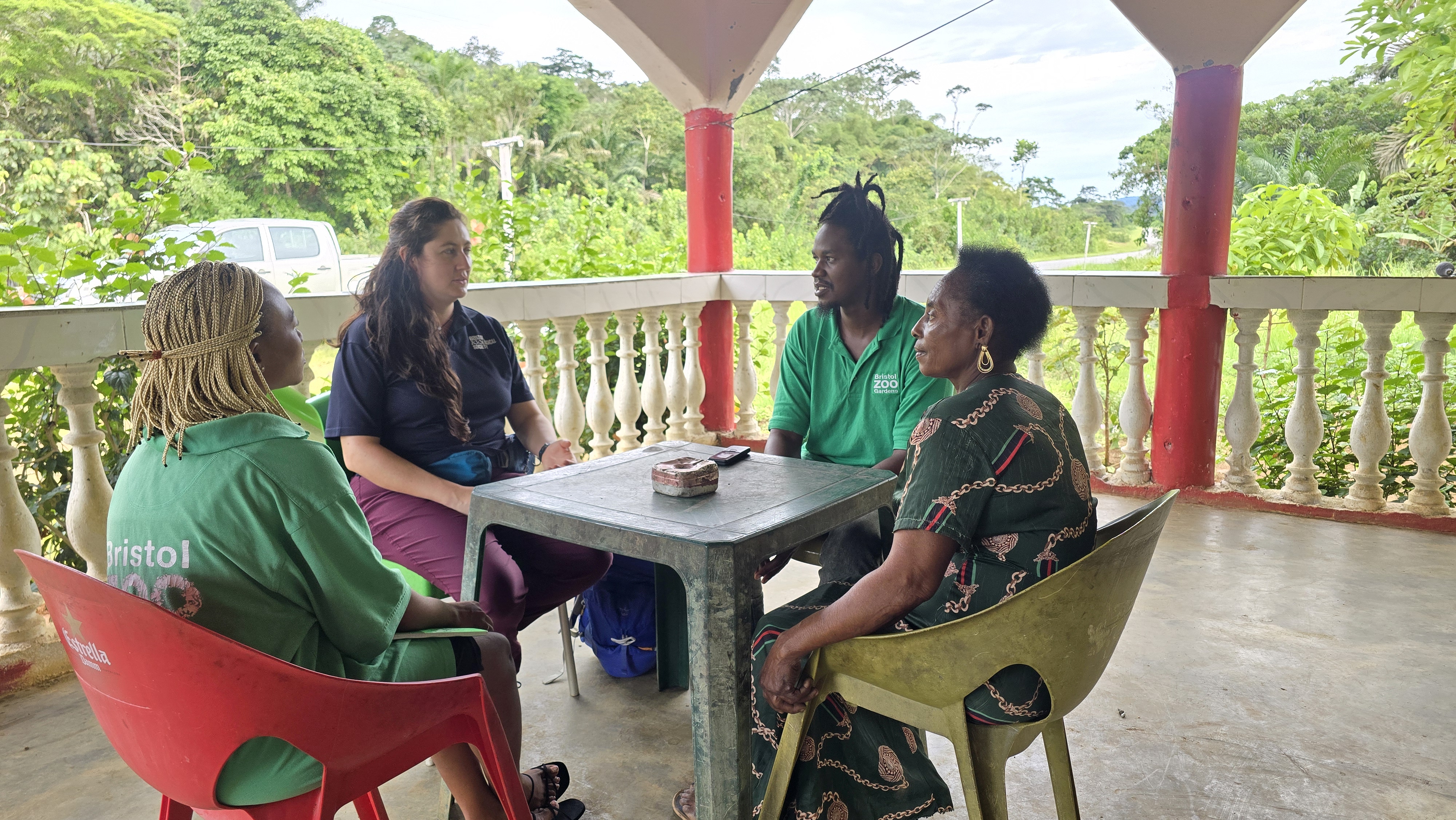 This blog was authored by Hortensia HOSNAH, MSc Conservation Leadership student, UWE-Bristol.
This blog was authored by Hortensia HOSNAH, MSc Conservation Leadership student, UWE-Bristol.
More information about our conservation work in Equatorial Guinea can be found below.

Want to help us save wildlife?
Become a member today for a year of wild adventure, and help protect the animals and habitats you love by supporting our conservation charity.

